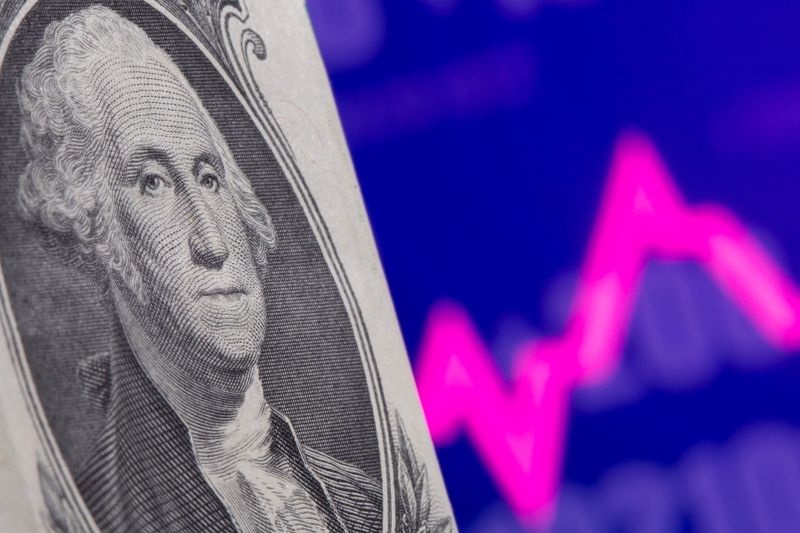By Geoffrey Smith
Investing.com -- The dollar was up against high-yielding currencies but lower against the euro and sterling on Monday, as Friday's jobs report left room for significant room for uncertainty over when the Federal Reserve may start to raise interest rates.
The jobs report was the weakest this year, with only 194,000 nonfarm jobs being added, well short of consensus. A big upward revision to August's data softened the disappointment a little, but average earnings came in above expectations, increasing fears that inflation may strengthen at the same time as growth slows due to constraints in both global supply chains and local labor markets. The numbers did nothing to suggest that the Fed won't start tapering its bond purchases next month, however.
By 3:10 AM ET (0710 GMT), the dollar index that tracks the greenback against a basket of advanced economy currencies was effectively flat at 94.073, having failed to push beyond its September high in response to the jobs report on Friday. The dollar advanced 0.4% against the yen, and by 0.3% against the New Zealand dollar, supported by high global commodity prices that require dollars for trade settlement.
However, it was lower against the pound, after comments from two senior Bank of England officials - including Governor Andrew Bailey - at the weekend, which signaled very clearly that the Bank is looking to raise interest rates in the near term. Inflation expectations have risen to over 4% within five years in the U.K., a country that is still more scarred than most by memories of stagflation in the 1970s.
Bailey told the Yorkshire Post in an interview that "obviously" he is "concerned" at above-target inflation, adding that: "We are going to have a very delicate and challenging job on our hands so we have got to in a sense prevent the thing becoming permanently embedded because that would obviously be very damaging.”
His colleague Michael Saunders, meanwhile, told the Sunday Telegraph that the U.K. would have to brace for "significantly earlier" rate hikes. The Bank's key rate has been set at 0.1% since the start of the pandemic.
Sterling rose 0.4% to a three-month high of 1.1804 against the euro and rose 0.4% against the dollar to a one-month high of $1.3664.
Oil-themed currencies continued their strong run as crude prices stayed well above $80 a barrel over the weekend. The Russian ruble tested a 14-month high against the dollar at 71.6724, while the Canadian dollar was testing a two-month high after it posted a much stronger labor market report on Friday. Canada added 157,000 jobs in September and has now replaced all the jobs it lost at the start of the pandemic.
U.S. markets will be thinned out slightly by the Columbus Day holiday in the U.S., while speeches from the European Central Bank's chief economist Philip Lane and Frank Elderson will be scanned for any sign that the ECB - increasingly an outlier to the global trend of monetary tightening - is starting to react to higher inflationary pressure.
